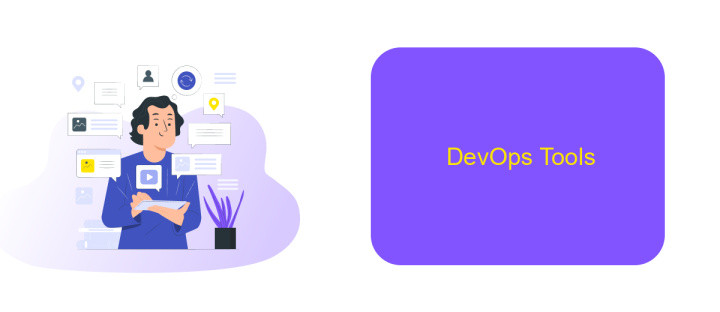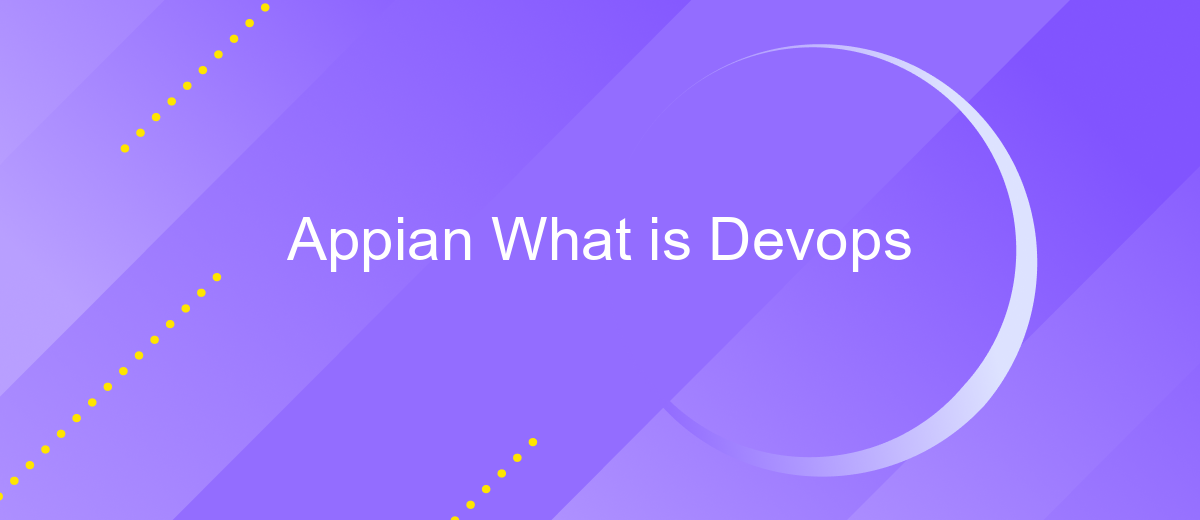Appian What is Devops
DevOps, a blend of "development" and "operations," is a transformative approach aimed at enhancing collaboration between software developers and IT operations. By integrating and automating processes, DevOps seeks to shorten the development lifecycle, ensure continuous delivery, and improve overall efficiency. In this article, we will explore the principles, practices, and benefits of adopting DevOps within your organization.
What is DevOps?
DevOps is a set of practices that combines software development (Dev) and IT operations (Ops). It aims to shorten the systems development life cycle and provide continuous delivery with high software quality. DevOps is complementary to Agile software development; several DevOps aspects came from Agile methodology.
- Collaboration: DevOps emphasizes collaboration between developers and operations teams.
- Automation: Automating repetitive tasks to increase efficiency and reduce human error.
- Continuous Integration/Continuous Deployment (CI/CD): Integrating code changes frequently and deploying them automatically.
- Monitoring and Logging: Keeping track of performance and issues in real-time.
- Infrastructure as Code (IaC): Managing infrastructure through code and automation.
By integrating these practices, organizations can deliver software faster and more reliably. Tools like ApiX-Drive can facilitate seamless integration between various services and platforms, further enhancing the DevOps workflow. This results in improved collaboration, faster problem resolution, and more efficient software development processes.
Benefits of DevOps

DevOps offers numerous benefits that significantly enhance the software development lifecycle. One of the primary advantages is the acceleration of deployment frequency, enabling teams to release updates and new features more rapidly. This increased speed not only improves time-to-market but also allows for quicker feedback loops, ensuring that any issues are identified and resolved promptly. Additionally, DevOps fosters a collaborative culture between development and operations teams, breaking down silos and promoting a more cohesive working environment.
Another key benefit of DevOps is its focus on automation and integration, which reduces manual errors and increases efficiency. Tools and services like ApiX-Drive facilitate seamless integrations between various applications and systems, streamlining workflows and enhancing productivity. By automating repetitive tasks and ensuring continuous delivery, DevOps minimizes downtime and improves the reliability of applications. Furthermore, the emphasis on monitoring and continuous improvement helps organizations maintain high-quality standards and adapt to changing business needs more effectively.
Key Practices of DevOps

DevOps is a set of practices that combines software development (Dev) and IT operations (Ops) to shorten the development lifecycle and deliver high-quality software continuously. By fostering a culture of collaboration and shared responsibility, DevOps helps organizations achieve faster deployment, improved performance, and enhanced security.
- Continuous Integration and Continuous Deployment (CI/CD): Automate the integration and deployment processes to ensure code changes are tested and deployed rapidly and reliably.
- Infrastructure as Code (IaC): Manage and provision infrastructure using code and automation tools, allowing for consistent and repeatable environments.
- Monitoring and Logging: Implement robust monitoring and logging systems to track application performance, detect issues, and facilitate troubleshooting.
- Collaboration and Communication: Use tools and practices that enhance collaboration between development and operations teams, such as chat platforms and project management software.
- Automated Testing: Integrate automated testing into the development pipeline to ensure that code changes do not introduce new bugs or vulnerabilities.
- Integration Tools: Utilize services like ApiX-Drive to streamline the integration of various applications and systems, enhancing overall workflow efficiency.
By adopting these key practices, organizations can achieve a more agile and responsive development process. DevOps not only helps in reducing the time to market but also enhances the reliability and security of software products. This holistic approach ensures that the entire development and operations lifecycle is optimized for continuous improvement and innovation.
DevOps Tools

DevOps tools play a crucial role in automating and streamlining the software development lifecycle. They enable teams to collaborate more effectively, ensure continuous integration and delivery, and maintain the quality of the codebase. With the right tools, DevOps practices can significantly reduce the time to market and improve overall productivity.
There are a variety of DevOps tools available, each serving specific purposes such as version control, configuration management, continuous integration, and monitoring. These tools help in achieving seamless integration between development and operations teams, thereby fostering a culture of collaboration and efficiency.
- Jenkins: An open-source automation server that supports continuous integration and delivery.
- Docker: A platform for developing, shipping, and running applications in containers.
- Kubernetes: An open-source system for automating deployment, scaling, and management of containerized applications.
- Git: A distributed version control system for tracking changes in source code.
- ApiX-Drive: A service that simplifies the integration of various applications and services, enhancing automation and data flow.
By leveraging these tools, organizations can create a robust DevOps pipeline that ensures faster delivery of high-quality software. The integration capabilities provided by services like ApiX-Drive further enhance the automation process, making it easier to connect different systems and streamline workflows.
Case Studies of DevOps in Action
One notable case study of DevOps in action is the transformation at a leading financial services company. Facing frequent deployment delays and operational inefficiencies, the company adopted a DevOps approach to streamline its processes. By integrating continuous integration and continuous deployment (CI/CD) pipelines, they significantly reduced the time required to release new features. Automation tools were employed to handle repetitive tasks, ensuring consistency and reducing human error. This shift not only accelerated their development cycles but also improved the overall quality of their software products.
Another compelling example is a global e-commerce platform that leveraged DevOps to enhance its customer experience. By utilizing ApiX-Drive for seamless integration of various third-party services, the platform was able to automate its data flow and synchronize information across different systems in real-time. This integration enabled faster response times and more accurate inventory management, leading to increased customer satisfaction. The DevOps culture fostered collaboration between development and operations teams, resulting in a more agile and resilient infrastructure capable of handling peak traffic loads efficiently.
- Automate the work of an online store or landing
- Empower through integration
- Don't spend money on programmers and integrators
- Save time by automating routine tasks
FAQ
What is DevOps in the context of Appian?
How does DevOps benefit Appian development?
What tools are commonly used for DevOps in Appian?
How can I automate integrations in Appian using third-party services?
What are the best practices for implementing DevOps in Appian?
Time is the most valuable resource for business today. Almost half of it is wasted on routine tasks. Your employees are constantly forced to perform monotonous tasks that are difficult to classify as important and specialized. You can leave everything as it is by hiring additional employees, or you can automate most of the business processes using the ApiX-Drive online connector to get rid of unnecessary time and money expenses once and for all. The choice is yours!


